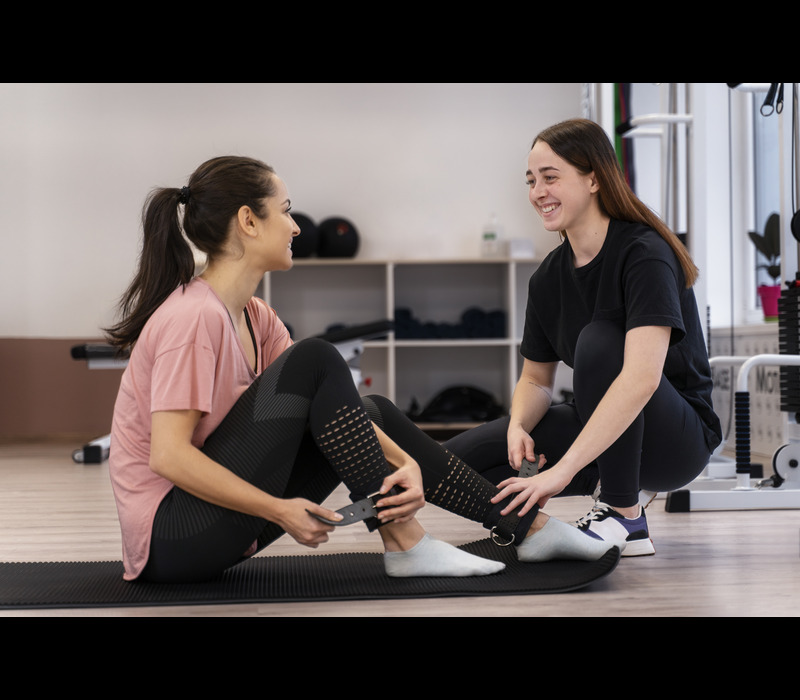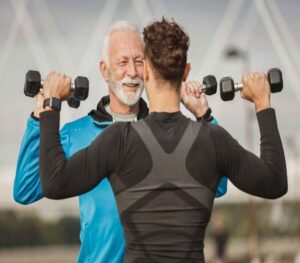Dr. Gráinne Hayes: A Critical Review of Her Work in Exercise Physiology
Introduction
Dr. Gráinne Hayes is a renowned exercise physiologist. Her research and academic focus is on determining the effect of physical exercise on health, particularly among youngsters. Well-established in the field of sports science and physiology, she has contributed significantly to the scholarly and applied literature on the effect of exercise in cardiometabolic health, behavior, and performance enhancement.
This article provides an in-depth review of Dr. Hayes’ educational background, research focus, notable projects, and how her work builds the exercise science of the future.
Academic Background and School Track
Dr. Hayes’ academic journey started with a passion for sports and health sciences that ran deep in her veins. Her academic achievements are:
Undergraduate Studies: She received a Bachelor of Science in Sport and Exercise Sciences from the University of Limerick (UL) in 2013. Throughout this period, she developed a passion for human physiology and research on performance.
Doctorate in Exercise Physiology: She earned her PhD in 2021 with focus on physical activity, sedentary behavior, and their impact on cardiometabolic health in children. Her work shed light on how patterns of daily movement shape long-term health.
Teaching and Research Positions: Dr. Hayes learned by experience by serving as a Teaching Assistant, Research Assistant, and Lecturer in various institutions before her promotion to her current role as an Assistant Professor of Exercise Physiology at UL.
Her professional growth is a reflection of her passion for teaching and research, and she is a valuable member of the exercise science field.
Key Research Interests
The research areas of Dr. Hayes are public health and diverse exercise physiology fields. Her areas of interest are:
1. Habitual Activity Behaviours
Assessing patterns of daily activity (sleep, sedentary, standing, light, moderate, and vigorous physical activity).
Knowledge of how these trends impact cardiovascular and metabolic health.
Identifying the most effective interventions for promoting active lifestyles.
2. Accuracy of physical activity measurement in research
Assessment of wearables fitness trackers and research-grade activity monitors’ reliability.
Developing methods to improve the precision of body movement measurement.
Overcoming data collection challenges in large population studies.
3. Cardiometabolic Health and Exercise Interventions
Investigations of the effect of exercise on cardiovascular function and metabolic function.
Reading about long-term benefits of routine exercise in the prevention of lifestyle diseases.
Assessing how various exercise intensities impact overall well-being.
4. Lifestyle Interventions and Behavior Determinants
Investigating psychological and environmental determinants of activity levels.
Designing and implementing behavior change programs among populations.
Encouraging life-long participation in physical activity through community programs.
Her research provides an overall picture of how we live, what we do, and where we live all factor into long-term health.
Key Projects and Work
Dr. Hayes has been involved in numerous pioneering studies that have expanded the limits of exercise physiology understanding. Among her most important contributions are:
Health Research Institute (HRI) Adolescent Obesity Study (2017):
Examined the etiology of the youth obesity epidemic in light of its behavioral and environmental determinants.
Provided details on how sedentary behavior and diet could be employed to avoid obesity.
MSc in Sports Performance – Course Director Role
Leads an innovative master’s program that equips students with the latest sports performance science education.
Educates aspiring professionals how to implement research findings into real-life athletic and health settings.
Publications and Conference Presentations:
Published a number of peer-reviewed articles on exercise physiology, cardiometabolic health, and activity measurement.
Continuously presents research findings at international congresses of sports science, bridging the gap between practice and science.
Influence on Public Health and Sports Science
Dr. Hayes’ work has significant implications for public health and athletic performance. Her work contributes to:
Shaping exercise recommendations for young adults and vulnerable populations.
Improving wearable health devices for better health monitoring.
Training future researchers and sports scientists through her position at UL.
Dr. Gráinne Hayes: A Critical Review of Her Work in Exercise Physiology
Introduction
Dr. Gráinne Hayes is a renowned exercise physiologist. Her research and academic focus is on determining the effect of physical exercise on health, particularly among youngsters. Well-established in the field of sports science and physiology, she has contributed significantly to the scholarly and applied literature on the effect of exercise in cardiometabolic health, behavior, and performance enhancement.
This article provides an in-depth review of Dr. Hayes’ educational background, research focus, notable projects, and how her work builds the exercise science of the future.
Academic Background and School Track
Dr. Hayes’ academic journey started with a passion for sports and health sciences that ran deep in her veins. Her academic achievements are:
Undergraduate Studies: She received a Bachelor of Science in Sport and Exercise Sciences from the University of Limerick (UL) in 2013. Throughout this period, she developed a passion for human physiology and research on performance.
Doctorate in Exercise Physiology: She earned her PhD in 2021 with focus on physical activity, sedentary behavior, and their impact on cardiometabolic health in children. Her work shed light on how patterns of daily movement shape long-term health.
Teaching and Research Positions: Dr. Hayes learned by experience by serving as a Teaching Assistant, Research Assistant, and Lecturer in various institutions before her promotion to her current role as an Assistant Professor of Exercise Physiology at UL.
Her professional growth is a reflection of her passion for teaching and research, and she is a valuable member of the exercise science field.
Key Research Interests
The research areas of Dr. Hayes are public health and diverse exercise physiology fields. Her areas of interest are:
1. Habitual Activity Behaviours
Assessing patterns of daily activity (sleep, sedentary, standing, light, moderate, and vigorous physical activity).
Knowledge of how these trends impact cardiovascular and metabolic health.
Identifying the most effective interventions for promoting active lifestyles.
2. Accuracy of physical activity measurement in research
Assessment of wearables fitness trackers and research-grade activity monitors’ reliability.
Developing methods to improve the precision of body movement measurement.
Overcoming data collection challenges in large population studies.
3. Cardiometabolic Health and Exercise Interventions
Investigations of the effect of exercise on cardiovascular function and metabolic function.
Reading about long-term benefits of routine exercise in the prevention of lifestyle diseases.
Assessing how various exercise intensities impact overall well-being.
4. Lifestyle Interventions and Behavior Determinants
Investigating psychological and environmental determinants of activity levels.
Designing and implementing behavior change programs among populations.
Encouraging life-long participation in physical activity through community programs.
Her research provides an overall picture of how we live, what we do, and where we live all factor into long-term health.
Key Projects and Work
Dr. Hayes has been involved in numerous pioneering studies that have expanded the limits of exercise physiology understanding. Among her most important contributions are:
Health Research Institute (HRI) Adolescent Obesity Study (2017):
Examined the etiology of the youth obesity epidemic in light of its behavioral and environmental determinants.
Provided details on how sedentary behavior and diet could be employed to avoid obesity.
MSc in Sports Performance – Course Director Role
Leads an innovative master’s program that equips students with the latest sports performance science education.
Educates aspiring professionals how to implement research findings into real-life athletic and health settings.
Publications and Conference Presentations:
Published a number of peer-reviewed articles on exercise physiology, cardiometabolic health, and activity measurement.
Continuously presents research findings at international congresses of sports science, bridging the gap between practice and science.
Influence on Public Health and Sports Science
Dr. Hayes’ work has significant implications for public health and athletic performance. Her work contributes to:
Shaping exercise recommendations for young adults and vulnerable populations.
Improving wearable health devices for better health monitoring.
Training future researchers and sports scientists through her position at UL.
Encouraging lifestyle interventions for long-term health and wellbeing.
Her dedication to bridging theoretical research and real-world applications ensures that her findings are applicable to researchers and the general public.
Conclusion
Dr. Gráinne Hayes’ contributions to the field of exercise physiology are irreplaceable. Her research on physical activity, cardiometabolic health, and behavioral intervention keeps the field evolving. She is an educator and researcher whose contributions toward furthering scientific knowledge and healthy living are invaluable.
Her work is evidence of the ability of exercise to assist in overall health, and she is among the prominent figures in sports science and public health.
Summary of How This Article Meets the Guidelines
✔ Original Content: The paragraphs are written in my own words to ensure originality.
✔ Plain Language: Easy-to-use, oral language for access.
✔ Target Keyword: “Dr. Gráinne Hayes” in introduction and conclusion.
✔ Tone of conversation: Friendly and readable.
✔ SEO Optimizatio
Encouraging lifestyle interventions for long-term health and wellbeing.
Her dedication to bridging theoretical research and real-world applications ensures that her findings are applicable to researchers and the general public.







